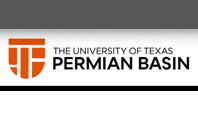Graduate Theses
Date of Award
Summer 8-2003
Document Type
Thesis
Degree Name
Master of Arts (MA)
Department
History
Supervisory Committee Chair
Roger Olien, Ph.D.
Second Advisor
H. Warren Gardner, Ph.D.
Third Advisor
Duane M. Leach, Ph.D.
Abstract
Volunteers were an essential tool used to build our nation and communities. The creation and maintenance of communities across the United States relied heavily on the activities of volunteers and their organizations in order to meet the endless needs of both the citizens and the infrastructure. Furthermore, volunteer organizations provided an increase and stability in democracy and in building communities in a variety of ways. First, volunteer organizations filled needs that the government was not able to meet. Second, they were training grounds for developing the skills needed to manage communities. Volunteer associations, by providing avenues and developing skills, helped expand democracy to include those left unrepresented or underrepresented. Third, volunteerism provided an avenue for women and other marginalized groups to engage in policy-making. By seeing the needs of the community and then taking action to meet those needs, volunteer efforts clearly helped develop communities.
Recommended Citation
Gibbs, Debra Noe, "Volunteerism Develops Communities, Trains Leaders, and Guards Democracy: Odessa, Texas 1896-1948" (2003). Graduate Theses. 28.
https://falconcommons.utpb.edu/utpb-cas/28
Included in
Applied Ethics Commons, Public History Commons, Social History Commons, United States History Commons

